Gospel, Catechesis, Catechism
JOSEPH CARDINAL RATZINGER
Gospel, Catechesis, Catechism
~
Sidelights on the
Catechism of the Catholic Church
IGNATIUS PRESS SAN FRANCISCO
Title of the German original:
EvangeliumKatecheseKatechismus
Streiflichter auf den Katechismus der katholischen Kirche
1995 Verlag Neue Stadt GmbH, Munich
Cover design by Roxanne Mei Lum
1997 Ignatius Press, San Francisco
All rights reserved
ISBN 978-0-89870-633-8 (PB)
ISBN 978-1-68149-217-9 (E)
Library of Congress catalogue number 97-70814
Printed in the United States of America
Contents
a. Jesus Gospel
b. The Gospel in the Gospels
c. Pauls Gospel
a. The Biblical Foundation and Concept of Catechesis
b. The Context of the Catechism
c. On the Didactic Structure of the Catechism
Preface
Two years after the publication of the Catechism of the Catholic Church , a significant portion of German-language theology still tends to shut out the book and to declare it a fundamental mistake. Meanwhile, there is no overlooking the fact that the Christian world has pronounced a very different judgment. Wherever it is published, the Catechism generates a demand that puzzles not only sociologists and pollsters but even Church officials and catechetical experts. Although explanations of the phenomenon may differ on points of detail, one thing is certain: the sensus fidei of the People of God is coming to expression here in a way that can no longer be ignored. If, on the other hand, the group of theologians just mentioned does not want to find itself increasingly shut out of this worldwide development of the sensus fidei , it will eventually have to relax its negative posture. It will have to engage the Catechism positively, and that means bringing to it more than the lenses of the schoolmaster. The four chapters of this small volume are meant as an invitation to this changed approach to the Catechism . The pieces that appear here are far from being in any way complete; they are occasional writings, sidelights on individual aspects of the Catechism . But perhaps for this very reason they will be able to encourage an unprejudiced reading of the work as a whole. These modest essays will have attained their purpose if they inspire a willingness to read the Catechism with this open-minded attitude.
+ Joseph Cardinal Ratzinger
Rome, July 31, 1994
What Can We Expect from a
Catechism of the Catholic Church?
The Catechism of the Catholic Church is the end result of an approximately six-year-long collaborative effort that brought together bishops, theologians and laymen. In the Apostolic Constitution that introduces the Catechism , the Pope rightly speaks of the texts many-voiced harmony, noting that it truly expresses what could be called the symphony of the faith. The Pope adds that the achievement of this Catechism thus reflects the collegial nature of the Episcopate; it testifies to the Churchs catholicity.
The response to the Catechism reflects and confirms its origin. Wherever it has appeared on the shelves, the Catechism has become a smashing success. In France, it became an overnight best-seller that one could purchase in airport bookstalls and railway stations among items that one would not normally associate with a catechism. In the Spanish- and Portuguese-speaking world, even people who generally do not read were clamoring for it. It was not long before a whole body of extracts and summaries began springing up.
Despite a far-reaching propaganda campaign against the Catechism , it generated a great demand in the German-speaking countries. Perhaps the most spectacular success of all was reserved for the English edition. The subtlety of the English language, its worldwide diffusion in various cultural contexts, developments in feeling for language [ sprachgefhl ], and the evolution of speech-related ideologies had slowed down the process of translation. As a result, the English-language version of the Catechism could not be published until the early summer of 1994first in Africa, then in Great Britain, Ireland and the United States of America. Further editions (of the same text) will appear in India, the Philippines and in other English-speaking countries. In England, 100,000 copies of the Catechism were sold within two weeks of its publication, and the demand remains steady. In the United States, half a million copies had already been ordered even before the book was available on the market. To date more than two million copies have been sold. Further translations, especially into the Slavic languages, are underway.
Chief among the versions still in preparation is the Latin, which will become the textus typicus , the standard text against which all the translations will have to be checked. It may seem odd that the standard text will appear last. However, this affords the commission in charge of the Catechism another opportunity to go through all the citations and cross-references. It will also give the commission a chance to study and take into account all comments on oversights, occasional imprecise formulations, and the like, that do not call into question the substance of the text itself. The Latin text will not be a modified version, a sort of new revised edition. With the approbation bestowed by the papal constitution of October 11, 1992, the French version was recognized as the definitive form of the text. What are possible and expected, however, are stylistic improvements (where the context does not appear completely clear) and corrections (where there are mistakes in citations or other sorts of inaccuracies in the historical documentation).
Various extracts from the Catechism were already circulating even before the publication of the official text in December 1992. The selection of these extracts was generally rather tendentious, and the texts themselves were almost universally based on provisional versions. This had the disadvantage of spreading inexact, indeed, distorted ideas about the book. Yet it also had a positive side, insofar as it stimulated curiosity about the real contents of the work. Almost without exception, these prepublications pounced on the moral part of the Catechism . Readers could easily have gotten the impression that the Catechism was nothing but a catalogue of sins. The unauthorized publications often made it appear as though the Church mainly wanted to tell people what they could not do and that she had a fixation on sin. Nevertheless, this very fact sparked a lively debate. For while it is certainly neither possible nor desirable to live by prohibitions and accusations, the question about our duty as human beings, about the kind of life required for the rectitude of our own being and the being of the world, is the essential question of every age. And precisely the men of our time, who face so many catastrophes and menaces, yet are also in search of real hope, experience it with renewed passion as the fundamental question that concerns each and every one of us.
J. P. Sartre regarded it as mans basic drama, indeed, tragedy, that he is thrown into a freedom that leaves him to determine what he ought to do with his existence. But this is precisely what man is ignorant of, and every time he makes a decision he plunges into an adventure of uncertain outcome. It seems to me that so many contemporary thinkers and artists dedicated themselves to Marxism because, whatever its flaws, it gave a coherent and, on its own premises, logical answer to this basic human problem, while seeming to put all the energies of our existence at the service of a great moral purpose: the creation of a better humanity and a better world. In reality, however, this Marxism was for many only a palliative to dull the feeling of meaninglessness and aimlessness that afflicted them.
Next page
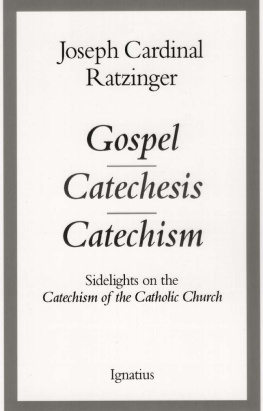
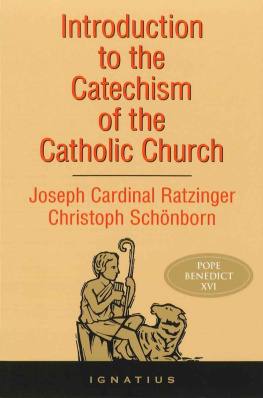
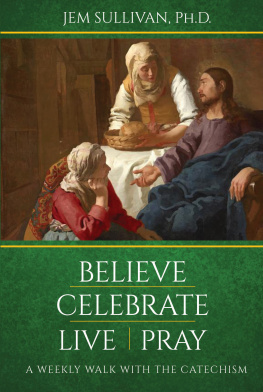

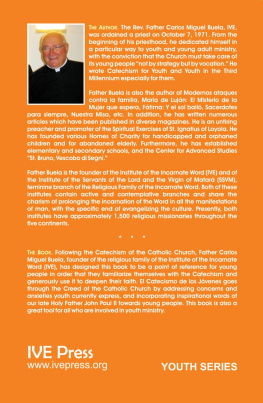
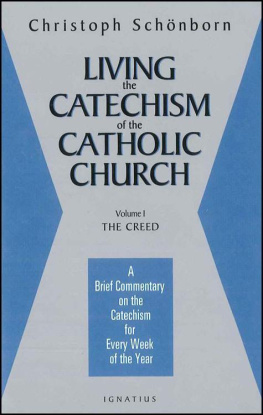
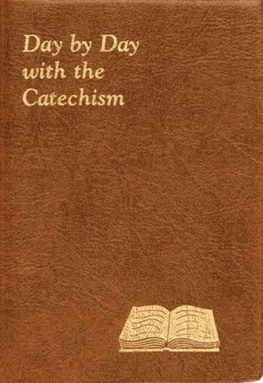
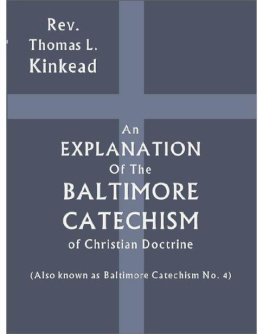
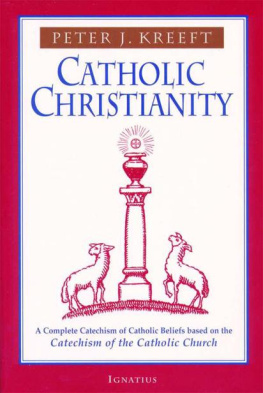
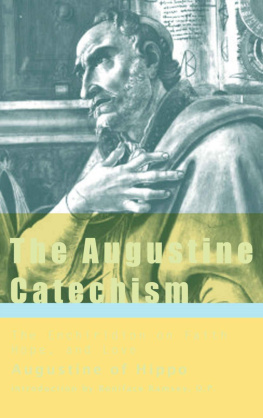
![USCCB [USCCB] - Catechism of the Catholic Church](/uploads/posts/book/57902/thumbs/usccb-usccb-catechism-of-the-catholic-church.jpg)